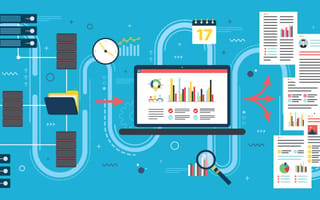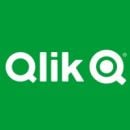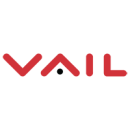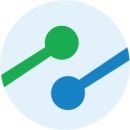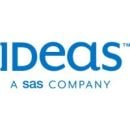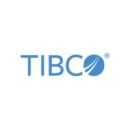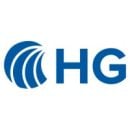Possessing loads of data means nothing if you can’t decipher it, which is where business intelligence companies come into play. These companies gather data, conduct analyses and organize their findings into reports, charts, dashboards and other convenient formats. Businesses then make decisions based on this digestible information, and the results are a game-changer.
If you don’t consider market trends and consumer preferences, you may introduce a product that is out of touch with customers, such as Cheeto-flavored lipstick. On the other hand, businesses that do value data can heighten their institutional self-knowledge and make smarter decisions. This was the case with Uber, which applied its vehicle-tracking and route optimization technologies to create the UberEats app, now worth billions.
While business intelligence may sound abstract, the insights it produces are often fairly simple. Restaurants, for instance, rely on business intelligence to pinpoint bottlenecks in kitchen workflows and highlight popular dishes.
Still, this field has undergone over a century of evolution to get where it is today. Having moved on from decision support systems, companies can now leverage business intelligence software, SQL databases, cloud platforms and machine learning tools. As a result, business intelligence boasts a range of applications.
We’ve compiled a list of business intelligence vendors gleaning insights from data and helping businesses make more evidence-based decisions.
Business Intelligence Companies to Know
- Toast
- insightsoftware
- Restaurant365
- Global Healthcare Exchange (GHX)
- Alation
- Sisense
- Alteryx
- Domo
- ActionIQ
Business Intelligence Companies to Know
Segment has attracted clients like IBM and Fox with its business intelligence platform. Users collect and warehouse data through Segment’s single all-purpose API. They can then apply more than 300 analytical tools, including a live debugging feature, assorted filters and marketing tools that let them target specific consumer personas. In keeping with the EU’s privacy laws, Segment also allows for data erasure.
Sisense’s analytics platform is designed for a range of companies, regardless of whether they take a code-first or no-code approach. The platform works with data warehouses like Snowflake and Amazon Redshift to connect to all of a company’s data. Teams can then effortlessly create easy-to-read data visualizations and look ahead to future opportunities with machine learning and predictive analyses.
Qlik’s platform unleashes AI on data, making even massive repositories of information feel manageable. The platform’s AI-powered Associative Engine can grasp interconnections between varied datasets and recommend directions and parameters for analysis. Users can also rely on the business intelligence software’s machine learning and natural language processing models to quickly process questions and locate the desired information.
Cox Enterprises has major divisions covering the agriculture, communication and automotive industries. Cox Automotive provides car dealers with market intelligence and manages brands like Autotrader, Kelley Blue Book and Dealer.com that work to connect buyers with vehicles that suit them well. The company aims to transform complex data into actionable insights to help clients better understand market trends and customers.
Vail Systems aims to provide companies with software tools with call centers that improve their customer service experience to be reliable, maintainable, scalable and available. It uses audio and video analysis technology and pre-integrates with the carrier-grade, cloud-based network services. The company was founded in 1991 and has its headquarters in Chicago.
Prosodica builds technology that analyzes customer interactions to inform the way businesses coach their customer service representatives. Its solutions evaluate speech along with non-verbal cues like tone and pace to produce personalized feedback for service agents and insights on call center performance and customer satisfaction.
Strata Decision Technology offers software solutions with the goal of “empowering organizations to fuel their missions.” Healthcare, higher education and financial services organizations use Strata’s cloud-based tools to access analytics capabilities and data insights that enable them to improve operational efficiency and financial planning.
Global Healthcare Exchange (GHX) helps healthcare providers and organizations solve their most pressing challenges. The business intelligence vendor also helps healthcare organizations increase their capabilities and streamline tasks through order-to-payment automation, contracting, price alignment, invoicing, payment automation and additional solutions, leading to better outcomes and reduced operational costs.
Tableau ensures that everyone in an enterprise can see essential patterns and correlations in enterprise data — without coding. The platform makes it easy for users to create visualizations, apply AI statistical models and search for answers with natural language models. Salesforce’s Einstein Discovery is also built into the platform, offering ways to simplify workflows and make more accurate data-driven decisions.
Redgate Software provides IT leaders and teams for operations and development with end-to-end software. Its solutions enable client organizations to glean value from data more efficiently and streamline software development. The company boasts that it has specialized in database software for more than 25 years.
Among its many data intelligence products, insightsoftware allows companies to track expenses and revenue streams with Longview Analytics. This financial analytics platform generates automated financial dashboards and centralizes data within a single location. In addition, the platform’s financial reports are much friendlier to the eye than Excel and offer intuitive point-and-click features.
GoodData’s clients can deliver real-time custom analytics to their users with embedded dashboards. The dashboards are outfitted with intuitive interfaces and machine learning algorithms that constantly improve their predictive capacities, and have led to corporate partnerships. Companies working with customer service platform Zendesk, for example, can visually track their ticket volumes, response times and more via GoodData dashboards.
From hardware to software, this business analytics platform was designed for the food industry. Toast’s kitchen hardware can withstand hotter temperatures than conventional tablets. The software’s restaurant-specific analytics also help managers identify bottlenecks in kitchen workflows or, at the front of the house, track how diner volume fluctuates by day and season.
Infor’s platform Birst stands out among other business intelligence vendors, as it specializes in networked business insights. That means that on their decentralized platform, the IT department owns the data, but individual users can still blend data into the enterprise’s overall data pool. Birst’s system reflects updates from both owners and users in real time and offers AI-powered analytics primed to discover data-driven explanations for mystifying phenomena.
Alteryx’s platform aims to free up time for data analysts so they can do more data analysis (workers can spend up to 44 percent of the workday on wasteful activities). That’s why Alteryx’s platform streamlines the processes of data cleaning and blending, making both coding-optional. Meanwhile, the machine-learning-enabled interface allows for rigorous analysis, with collaboration-friendly tools for predictive and spatial modeling.
Apollo.io provides its customers with a platform for B2B data intelligence and sales engagement, with solutions that can be used by sellers, marketers and business founders. The platform’s features include a database of more than 250 million contacts with relevant information to help users connect with ideal prospects, as well as customizable templates for automated email outreach.
IdeaS uses big data to inform its revenue management solutions, which are designed for hospitality industry businesses like hotels, campsites, resorts and serviced apartments. Its G3 Revenue Management System uses huge, continually updated datasets to create pricing recommendations for individual rooms as well as for rate codes, and to predict consumer behavior like price sensitivity, no-shows and cancellations.
Restaurant365 provides restaurant owners and managers with an all-in-one management software designed to streamline operations. The platform features tools to help those in the restaurant industry with everything from hiring and payroll to scheduling, with additional vendor management, inventory, application and intelligence capabilities available as well.
The open design of Microstrategy’s business intelligence software allows for a broad spectrum of analytical projects. Companies can leverage the platform’s resources to design and deploy applications with their choice of high- and low-code methods. AI and machine learning also make it easy to develop workflows and harness analytics for informing business decisions.
Alation’s business insight platform not only autonomously inventories and indexes data, it contextualizes it. During analysis, its machine learning algorithms suggest query tweaks and remind users of best practices. They can also learn and recommend typical usage patterns or surface metadata with clarifying glossaries.
Domo supports companies with a flexible platform that can store data on Domo’s cloud or on a company’s own cloud. Accessible dashboards and a range of low- and no-code tools enable a business’ entire workforce to participate in the cloud as well. For even more convenience, the Domo platform can connect to data sources like Google and BigQuery while automating decision-making processes with machine learning.
Expert Institute connects legal teams with consultants, industry experts and doctors who can serve as expert witnesses in litigation. Its SaaS platform, Expert iQ, handles case management and functions as a hub for expert consultants. Expert iQ also has a business intelligence function called Expert Radar, which provides analytics and insights about factors like professional credentials, publications, litigation history and prior case involvement on opposing experts. The company also audits its own experts across the same metrics.
SambaSafety operates a cloud-based SaaS platform for mobility and driver risk intelligence. The company provides fleet management solutions for commercial and non-commercial drivers. Its tools help businesses to identify and mitigate risk associated with employees driving personal vehicles for business purposes.
Laudio’s platform helps leaders in frontline healthcare to support and recognize members of their teams. It aims to help frontline leaders build high-performing teams through encouraging engagement and early intervention into team issues. The company’s platform utilizes data to improve work environments, optimize staffing and guide decision-making.
Spotfire, TIBCO’s AI-powered platform, simplifies data analysis and provides a single place for businesses to store, verify and organize their data. The platform’s smart interface functions as a human-like assistant, recommending modeling approaches, highlighting trends and outliers, grasping the core meaning of naturally-phrased search queries, and parsing real-time data streams from Internet of Things devices and messaging services.
ActionIQ’s customer data platform powers personalized marketing campaigns for clients like Shutterfly and the New York Times. Its AI framework weaves data from social media, transactions and various other integrations into multidimensional consumer profiles. From there, marketers can use a simple drag-and-drop user interface to target audiences based on their web history and real-time behavior.
HG Insights provides B2B tech companies with go-to-market intelligence. It collects information from more than 20 billion unique sources to help businesses stay competitive in their markets. The company says approximately 75 percent of Fortune 100 tech companies use its insights to fuel marketing operations, sales efforts, product development and other strategic business initiatives.

